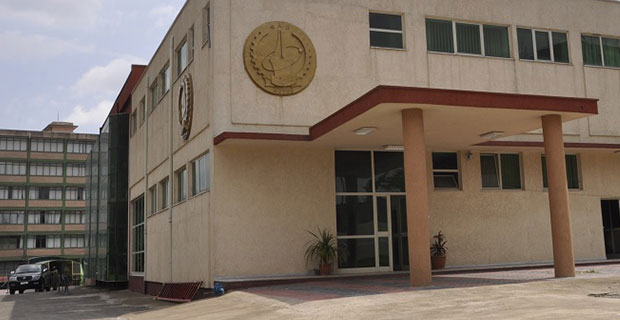
Radar | Oct 26,2019
Aug 14 , 2021
By Eden Sahle
Last Tuesday, I was asked by a friend to support a private international company in an interview process. They wanted to hire a general manager shortlisted after passing oral and written examinations. The company, which started operations in Ethiopia not long ago, was impressed with the bright young man who exceeded everyone's expectations.
The young man was well experienced, energetic, confident, polite, and full of new ideas. The company stated their confidence in his capabilities and their willingness to hire him. Surprisingly, they offered a 3,000 Birr monthly salary. Obviously, the job applicant was staggered and declined the figure, thanked everyone, and quickly left the room in disbelief and visible anger. He did not even make a counter-offer.
I did not blame him. His stable emotional state and politeness, even when his face showed disappointment was commendable. The company owners turned to me, looking confused about what had just happened and said they had offered the job applicant a good salary for an experienced leader.
“We came to invest in Ethiopia because of the low-cost labour promotion your country has done,” they explained. They boldly continued, “do not get this wrong, but in our country, employees who have his experience and skill cost a fortune but not in Ethiopia.”
Then the owners asked me if I knew what might have driven the man to leave an ongoing interview. All one needed to do was read his curriculum vitae. His monthly gross earning history records his minimum salary for a leadership position was 40,000 Br while his highest was 65,000 Br.
But the owners were quick to judge his CV. They were convinced he was lying about the figures. They were not bothered to confirm their doubts from his previous employers, whose contact address was stated in his application. When they were contacted, they verified the accuracy of his remuneration.
This sort of underpayment of employees is not new. It happens to all of us, although the extent might differ. Understandably, the nation is in a challenging position. With a fifth of the adult population unemployed, two-thirds of which comprises women, getting people something to do might seem like an immediate solution. But this undervalues Ethiopia’s human capital. Constant advertising of low-cost labour to foreign investors leaves employees underpaid and overworked. Workers in the manufacturing and agriculture sectors are the hardest hit.
Most people work hard for an income that hardly allows them to get by until the end of each month. It is a tragic fact that many people work for half a century without saving because they are not paid living wages. And while living costs continue to escalate, the unchanging wages enabling people to support themselves and their families. Under such conditions, people opt out of the formal labour market and may even choose to support themselves through illegal activity. This decline in workers harms innovation in the workforce because not every eligible worker contributes to the workforce.
The right to an adequate standard of living is a fundamental human right. It should be the priority of the country to make it possible for people able to access it. The lack of legal minimum wages for the private sector mandated by the government is leaving employees subject to abuse and unfair pay. Ensuring fair wages is complex and demands continuous study and update as the cost of living rises. This requires systemic policy change to benefit people.
Collaboration between workers’ unions, employers and policymakers will play vital roles in creating an enabling environment to raise living standards through living wages and incomes and paying professionals a deserving amount that recognises their education level and experience. People have a right to ask for salaries that allow them to thrive, not just survive.
PUBLISHED ON
Aug 14,2021 [ VOL
22 , NO
1111]

Radar | Oct 26,2019

Viewpoints | Jan 25,2020

Fortune News | Mar 16,2019

Viewpoints | Mar 05,2022

Fortune News | Dec 29,2018

Fortune News | Apr 13,2019

Radar | Oct 03,2020

Sunday with Eden | Jul 08,2023

Agenda |

Sunday with Eden | Jul 13,2019

My Opinion | 132272 Views | Aug 14,2021

My Opinion | 128692 Views | Aug 21,2021

My Opinion | 126600 Views | Sep 10,2021

My Opinion | 124206 Views | Aug 07,2021





Dec 22 , 2024 . By TIZITA SHEWAFERAW
Charged with transforming colossal state-owned enterprises into modern and competitiv...

Aug 18 , 2024 . By AKSAH ITALO
Although predictable Yonas Zerihun's job in the ride-hailing service is not immune to...

Jul 28 , 2024 . By TIZITA SHEWAFERAW
Unhabitual, perhaps too many, Samuel Gebreyohannes, 38, used to occasionally enjoy a couple of beers at breakfast. However, he recently swit...

Jul 13 , 2024 . By AKSAH ITALO
Investors who rely on tractors, trucks, and field vehicles for commuting, transporting commodities, and f...

Jul 12 , 2025
Political leaders and their policy advisors often promise great leaps forward, yet th...

Jul 5 , 2025
Six years ago, Ethiopia was the darling of international liberal commentators. A year...

Jun 28 , 2025
Meseret Damtie, the assertive auditor general, has never been shy about naming names...

Jun 21 , 2025
A well-worn adage says, “Budget is not destiny, but it is direction.” Examining t...

Jul 13 , 2025 . By YITBAREK GETACHEW
The Addis Abeba City Revenue Bureau has introduced a new directive set to reshape how...

Jul 13 , 2025 . By BEZAWIT HULUAGER
Addis Abeba has approved a record 350 billion Br budget for the 2025/26 fiscal year,...

Jul 13 , 2025 . By RUTH BERHANU
The Addis Abeba Revenue Bureau has scrapped a value-added tax (VAT) on unprocessed ve...

Jul 13 , 2025 . By NAHOM AYELE
Federal lawmakers have finally brought closure to a protracted and contentious tax de...